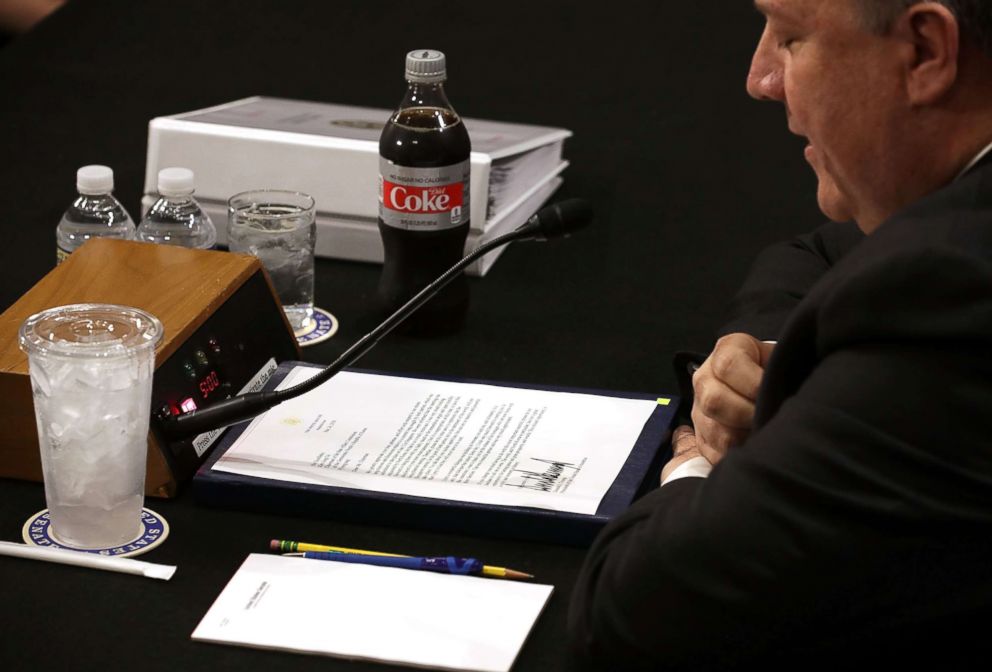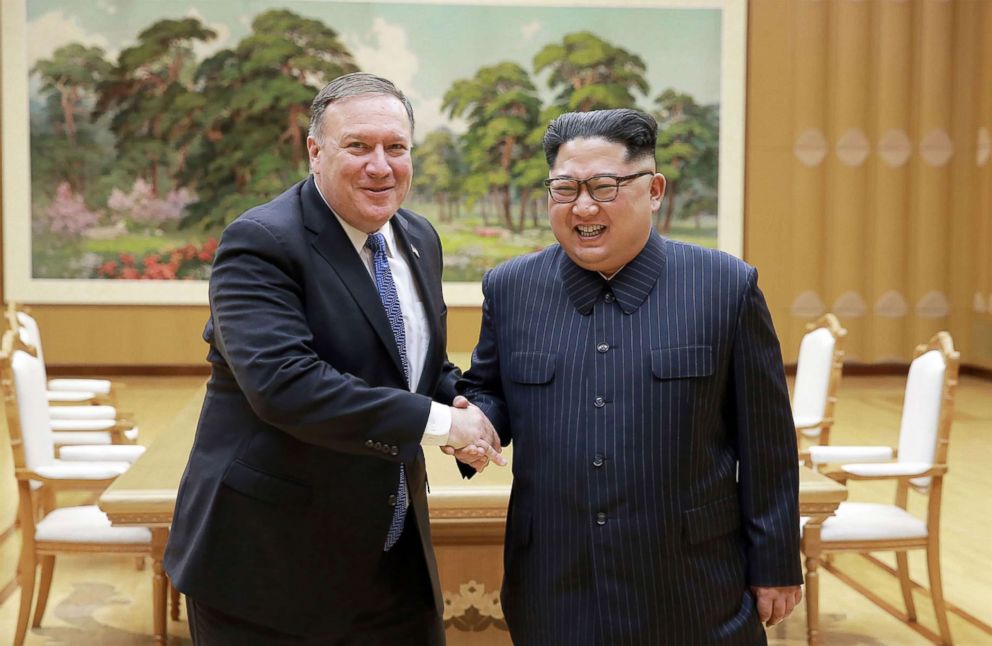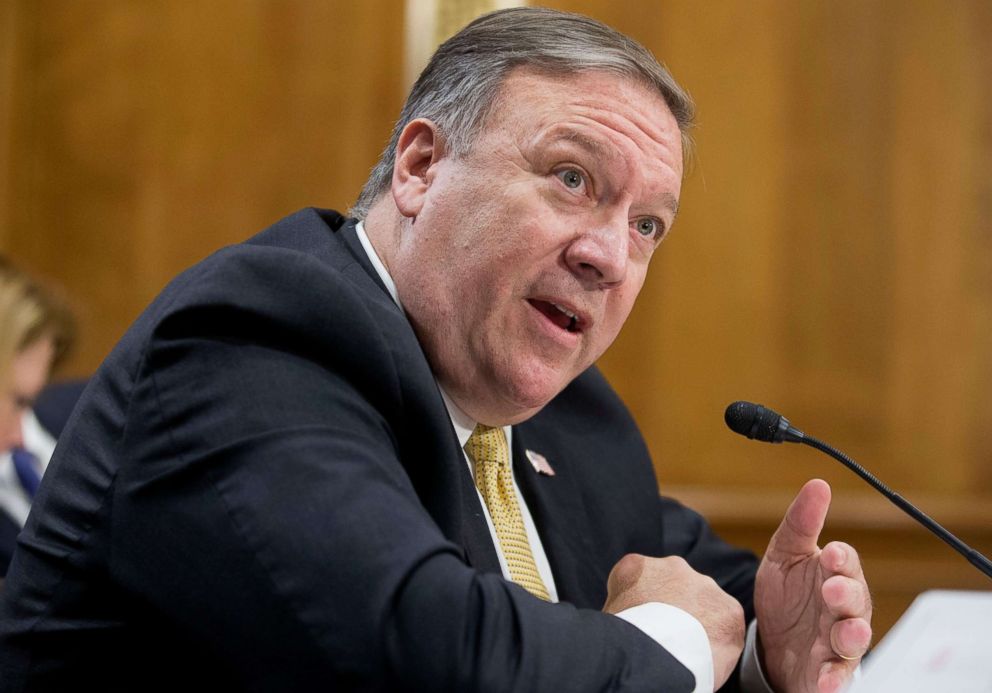Pompeo blames North Korea for summit cancellation, but still hopeful it will happen
Democrats say the inexperienced administration mishandled the diplomacy.
The Trump administration is blaming North Korea for President Donald Trump canceling his summit with Kim Jong Un, with Secretary of State Mike Pompeo saying the country's recent rhetoric showed they were unprepared to meet.
"We did not walk away from this," Pompeo told the Senate Foreign Relations Committee Thursday. "I regret the statements that the North Koreans have made over the past few days and the fact that we've not been able to conduct the preparation between our two teams that would be necessary to have a chance for a successful summit."
But Democrats weren't buying it, arguing the administration had mishandled the opportunity, blaming tough talk from top officials for sending the wrong message to Pyongyang.
"The art of diplomacy is a lot harder than the art of the deal," said the committee's top Democrat, Sen. Bob Menendez of New Jersey.
President Trump released a letter this morning, which the State Department had transmitted to North Korea and Kim Jong Un, saying he was canceling their meeting scheduled for June 12 in Singapore. He cited "the tremendous anger and open hostility displayed in your most recent statement" and said the cancellation was "for the good of both parties, but to the detriment of the world."
North Korea had released a statement Thursday that bashed Vice President Mike Pence for "ignorant and stupid" comments, in which he cited the so-called "Libya model" for North Korea's denuclearization and said the U.S. still has the military option for solving the North Korean crisis on the table.
In 2003, Libyan leader Muammar Gaddafi agreed to give up his nuclear weapons in exchange for normalized relations with the U.S., but to many, including North Korea, the model includes Gaddafi's overthrow, aided by western airstrikes, and his violent death seven years later.
"We will neither beg the U.S. for dialogue nor take the trouble to persuade them if they do not want to sit together with us. Whether the U.S. will meet us at a meeting room or encounter us at nuclear-to-nuclear showdown is entirely dependent upon the decision and behavior of the United States," said Choe Son-hui, a vice foreign minister, in a statement on North Koran state television KCNA.
Trump seemed to respond directly to that threat of war in his letter, writing, "You talk about your nuclear capabilities, but ours are so massive and powerful that I pray to God they will never have to be used."

But Pompeo, who read the letter at the top of the hearing, said plans for the summit had begun to fall apart over the few days, with the administration getting "a lot of dial tones" when reaching out to North Korea. That includes a planning meeting in Singapore last week where the North Koreans did not show up, according to a senior White House official.
"Over the past many days we have endeavored to do what Chairman Kim and I had agreed, was to put teams, preparation teams together to begin to work to prepare for the summit, and we have received no response to our inquiries from them," Pompeo said.
Democrats blamed a lack of understanding of North Korea and multiple references by Pence and National Security Adviser John Bolton to the "Libya model."
"The 'Libya model' as Kim Jong Un has been interpreting it is where leader surrenders their nuclear capability only to then be overthrown and killed," said Sen. Ed Markey, D-Mass. "Why would you think that there would be any other interpretation than what happened to Gaddafi at the end of his denuclearization, which is that he wound up dead? Why think that that would not, in fact, elicit hostility from a negotiating partner only three weeks from sitting down across the table?"

Pompeo rejected that argument, saying in his conversations with Kim, he made clear the U.S. would provide security assurances long after they struck a deal. Pompeo has met Kim twice, as CIA Director and Secretary of State – the highest-ranking U.S. official to do so, meeting for more than three hours in total.
Pompeo also denied that the administration did not know what it was doing, saying, "The American team is fully prepared. I think we are rockin'. I think we are ready. I think we are prepared for this meeting."
With the summit scrapped, for now, the international sanctions regime will remain in place, with the goal of getting the two leaders to sit down at some point, according to Pompeo, who said there were no signs China was violating the United Nations sanctions in any "serious" way.

But those partners in the sanctions campaign were surprised by Trump's letter and sudden cancellation, and there are questions now about whether it will crack the global pressure on North Korea. Pompeo declined to say whether the administration gave South Korea or others a heads-up.
At the White House Thursday, Trump threatened military action, saying the Pentagon "is ready if necessary," although he declined to say if the breakdown of the summit raises the risk of war.
But Pompeo said he was "still optimistic" there could be a diplomatic solution: "The diplomacy this administration has engaged in has gotten us this far. I am confident that we will move forward in a way that will continue to give us the opportunity to achieve this," he said.




